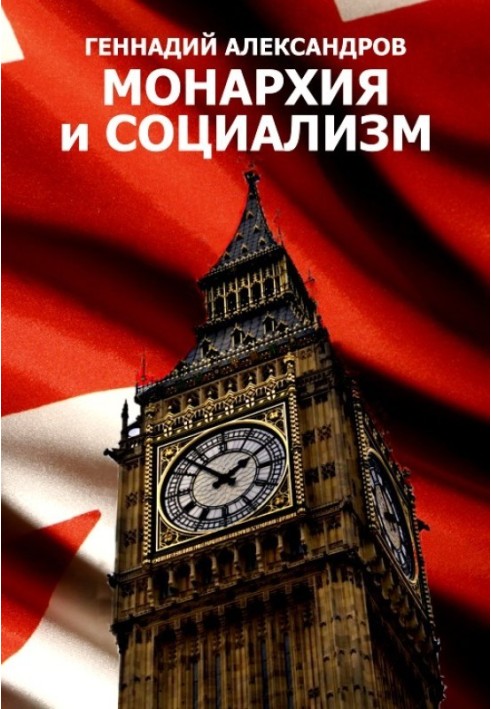Monarchy and socialism
 Instant download
Instant download
after payment (24/7)
 Wide range of formats
Wide range of formats
(for all gadgets)
 Full book
Full book
(including for Apple and Android)
What is victory and what is defeat? What are the criteria for both? How does victory turn into defeat, and defeat into victory? How is it that so many people living in a victorious country believe that their state lost the war, while those living in a defeated state are seriously convinced that they live in a prosperous victorious state? Let’s take World War II as an example. . Here is Potsdam, in Potsdam there were three winners, the big three - the USA, the USSR and Great Britain - divided the world. Let's take a closer look at one of the “winners” - Great Britain. The war is over, the dust from the bombing is settling, what is Great Britain like after the war? Factories, factories, railway junctions, docks and port facilities were destroyed. In cities, entire areas have been wiped off the face of the earth. Housing losses amount to more than four million homes. One in three homes in the UK is either destroyed or rendered uninhabitable. About a quarter of the population needs a roof over their head. The population is literally starving. Almost all British-owned companies were sold to Americans at bargain prices, and the British were forced to go into debt. All that was left of the English merchant fleet were horns and legs. During the war years, the Germans sank more than half of the British ships and the resulting niche was immediately occupied by the Americans. And the worst thing is that after the war there was nothing to export. This was the main problem, English exports died. We ask with bewilderment how France ended up among the winners in World War II? On reflection, we should ask a much more interesting question - how did Great Britain end up among the winners in Potsdam? What was she doing there? Socialism raised Great Britain from the ruins. The same "Ingsoc" described by Orwell. The new Prime Minister Clement Attlee, who won the elections immediately after the war, brought the socialist Labor Party to power. The revival plan included the nationalization of industry, banks, transport and communications, strict cost savings, planning of construction and production, limiting consumption and combating the black market; Great Britain had to part with almost all of its colonies. The process took eight long years - until 1953, when the cards were finally abolished, but Great Britain managed.
Data sheet
- Name of the Author
- Геннадий Александров
- Language
- Russian
Reviews
Глибоке дослідження перемоги та поразки
Книга "Монархія та соціалізм" є вражаючим дослідженням складних понять перемоги та поразки, які часто сприймаються однозначно, але насправді мають багато граней. Автор майстерно аналізує, як перемога однієї країни може обернутися поразкою для її населення, і навпаки. Використовуючи приклад Великої Британії після Другої світової війни, книга показує, як країна-переможець зазнала величезних втрат і руйнувань, що призвело до соціальних і економічних труднощів. Цей контраст між офіційними перемогами та реальним життям людей змушує задуматися про справжню ціну перемоги. Автор також розглядає роль соціалізму в відновленні країни, що є дуже актуальною темою для сучасного суспільства. Книга написана доступною мовою, і її ідеї спонукають до глибоких роздумів про політичні системи та їх вплив на життя людей. Рекомендую всім, хто цікавиться історією, політикою та соціологією!

















